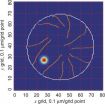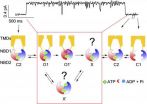(Press-News.org) Philadelphia, Pa. (September 26, 2012) – Same-sex partners and inconsistent condom use were among the major risk factors for HIV infection among U.S. Navy and Marines personnel during the "Don't Ask, Don't Tell" (DADT) era, reports a study in the October 1 issue of JAIDS: Journal of Acquired Immune Deficiency Syndromes. The journal is published by Lippincott Williams & Wilkins, a part of Wolters Kluwer Health.
"[M]ale-to-male sexual contact was a much more common mode of infection than previously reported," reports the new study, led by Shilpa Hakre, DrPH, MPH, of the US Military HIV Research Program, Rockville, Md. The researchers add, "Several opportunities for primary prevention messaging now possible after DADT repeal are evident."
What Factors Affected HIV Risk Under 'Don't Ask, Don't Tell'?
The survey study included 250 U.S. Navy and Marines personnel newly diagnosed as HIV positive from 2005 to 2010—while DADT was in place. "Don't Ask, Don't Tell" was repealed in 2011, ending the ban on openly homosexual individuals serving in the U.S. Armed Forces.
Participants in the anonymous online survey were asked about their sexual behaviors and other potential risk factors in the three years before acquiring HIV infection. The subjects were identified through the Navy Bloodborne Infection Management Center, which is responsible for HIV screening, prevention, care, and management. Sixty-four HIV-infected Sailors and Marines responded to the survey.
The most frequent risk factor was same-sex contact, reported by 84 percent of respondents. Fifty-five percent said they only had sex with men during the three-year period before they became infected. During this time, about half had concurrent relationships with different partners during this time. Sex with non-service members appeared to be another risk factor for HIV.
Most of the HIV-infected personnel reported using condoms rarely or inconsistently, especially for anal sex. Other risky sexual behaviors were common as well, such as meeting "new, casual, or temporary" partners at bars or clubs or on the Internet. Alcohol use appeared to contribute to risky behaviors.
"More than three-quarters of respondents were surprised at their HIV test result," Dr Hakre and coauthors write. Many reported low condom use because they knew or trusted their partner and their partner's HIV status. The findings suggest that the infected Sailors and Marines underestimated their individual risk of acquiring HIV
In the Navy and Marines as in the civilian population, men who have sex with men account for most new cases of HIV infection. The new survey finds a higher rate of male-to-male sexual contact than in previous military studies—possibly reflecting "liberalized responses due to DADT repeal effects," the researchers write. In the past, some military personnel with sexually transmitted infections have sought care in the civilian community, for fear of being discharged if their sexual orientation is revealed while receiving care at military health facilities.
The findings help to clarify the risk factors for HIV Armed Forces personnel, and highlight opportunities for prevention efforts—particularly promoting condom use. Now that "Don't Ask, Don't Tell" is no longer in force, prevention efforts for military personnel may be more targeted more openly and effectively, Dr Hakre and coauthors believe. They conclude, "DADT repeal may afford opportunities for facilitating necessary primary HIV prevention strategies such as those targeting condom use and newer social outlets such as Internet networking."
###
About JAIDS
JAIDS: Journal of Acquired Immune Deficiency Syndromes (www.JAIDS.com) is the trusted, interdisciplinary resource for HIV- and AIDS-related information with a strong focus on basic science, clinical science, and epidemiology. Co-edited by the foremost leaders in clinical virology, molecular biology, and epidemiology, JAIDS publishes vital information on the advances in diagnosis and treatment of HIV infections, as well as the latest research in the development of therapeutics and vaccine approaches. This ground-breaking journal brings together rigorously peer-reviewed articles, reviews of current research, results of clinical trials, and epidemiologic reports from around the world.
About Lippincott Williams & Wilkins
Lippincott Williams & Wilkins (LWW) is a leading international publisher of trusted content delivered in innovative ways to practitioners, professionals and students to learn new skills, stay current on their practice, and make important decisions to improve patient care and clinical outcomes. LWW is part of Wolters Kluwer Health, a leading global provider of information, business intelligence and point-of-care solutions for the healthcare industry. Wolters Kluwer Health is part of Wolters Kluwer, a market-leapding global information services company with 2011 annual revenues of €3.4 billion ($4.7 billion).
Study looks at risk factors for HIV in US Navy and Marines during 'Don't Ask, Don't Tell'
Prevention messages are 'now possible' post-DADT, reports JAIDS
2012-09-26
ELSE PRESS RELEASES FROM THIS DATE:
Researchers develop blood test that accurately detects early stages of lung, breast cancer in humans
2012-09-26
MANHATTAN, Kan. -- Researchers at Kansas State University have developed a simple blood test that can accurately detect the beginning stages of cancer.
In less than an hour, the test can detect breast cancer and non-small cell lung cancer -- the most common type of lung cancer -- before symptoms like coughing and weight loss start. The researchers anticipate testing for the early stages of pancreatic cancer shortly.
The test was developed by Stefan Bossmann, professor of chemistry, and Deryl Troyer, professor of anatomy and physiology. Both are also researchers affiliated ...
A birth control pill for men? When?
2012-09-26
When will men have their own birth control pill? Scientists have been predicting the debut of a male pill within 5 years for the last 30 years. The factors accounting for that delay — and new optimism that a male pill will emerge within a decade — are the topic of a story in the current edition of Chemical & Engineering News. C&EN is the weekly newsmagazine of the American Chemical Society, the world's largest scientific society.
In the story, Michael M. Torrice, C&EN associate editor, describes the need for a male version of the oral contraceptive pill that revolutionized ...
Loss of species makes nature more sensitive to climate change
2012-09-26
High biodiversity acts as an insurance policy for nature and society alike as it increases the likelihood that at least some species will be sufficiently resilient to sustain important functions such as water purification and crop pollination in a changing environment.
"It's the same principle as an investment portfolio – you'd be mad to put all your eggs in one basket," says researcher Johan Eklöf.
Experiments with eelgrass meadows in shallow inlets on the west coast of Sweden are now showing that climate change can exacerbate the negative effects of losing sensitive ...
Geometry plays a role in GPCR transmembrane signaling
2012-09-26
A recent study in The Journal of General Physiology characterizes the movement of rhodopsin, a GPCR and member of a large family of transmembrane receptors responsible for many cellular responses and involved in many human diseases.
In living Xenopus rod photoreceptor cells, rhodopsin is found in stacks of disc membranes that are difficult to study due to their small size. Now, Peter Calvert (SUNY Upstate Medical University) and colleagues have developed an approach with two-photon microscopy that, for the first time, allows direct examination within the living cell ...
University of Kentucky research sheds light on pain pill abuse
2012-09-26
LEXINGTON, Ky. (Sept. 26, 2012) — A study by a team of University of Kentucky researchers has shed new light on the potential habit-forming properties of the popular pain medication tramadol, in research funded by the National Institute on Drug Abuse. The paper is slated to appear in an upcoming edition of the academic journal Psychopharmacology.
Prescription pain killer abuse is a major public health problem in the U.S. In 2010, more individuals over the age of 12 reported nonmedical use of prescription pain relievers in the past month than use of cocaine, methamphetamine ...
New insights into functionality of cystic fibrosis protein
2012-09-26
CFTR is an important protein that, when mutated, causes the life-threatening genetic disease cystic fibrosis. A study in The Journal of General Physiology (JGP) details how an accidental discovery has provided new understanding about CFTR functionality.
From a scientific standpoint, CFTR is unique in that it is the only known ion channel—a protein pore that enables the passive diffusion of ions across cell membranes—in the enormous superfamily of ABC proteins, which normally operate as active transporters. As active transporters, ABC proteins use energy derived from ...
Paper: Federal law needed to safeguard 'digital afterlives'
2012-09-26
CHAMPAIGN, Ill. – Federal law ought to play a stronger role in regulating social networking sites by allowing users to determine what happens to their "digital afterlives," says a recently published paper by a University of Illinois expert in intellectual property law.
Allowing social networking sites to set their own policies regarding the content associated with the accounts of deceased users does not adequately protect individual and collective interests, especially with people spending an increasing part of their lives online using social networking sites, says Jason ...
Duke Medicine news -- Protein structure unlocks 1 mystery of multi-drug tolerance
2012-09-26
DURHAM, N.C. – The structures of key bacterial proteins have revealed one of the biochemical secrets that enables bacteria to outwit antibiotics.
In a paper published Sept. 20, 2012 in the journal Cell Reports, Duke University School of Medicine researchers and their colleagues describe the results of a series of experiments exploring multi-drug tolerance, a phenomenon that allows bacteria to become dormant and tolerate antibiotics, only to later awaken and re-infect the host. Drug tolerance is a factor in several types of stubborn, recurring infectious diseases caused ...
Taking the battle against the toxic trio beyond 'Leaves of 3, leave it be'
2012-09-26
With more than half of all adults allergic to poison ivy, oak and sumac, scientists are reporting an advance toward an inexpensive spray that could reveal the presence of the rash-causing toxic oil on the skin, clothing, garden tools, and even the family cat or dog. Using the spray, described in ACS' The Journal of Organic Chemistry would enable people to wash off the oil, or avoid further contact, in time to sidestep days of misery.
Rebecca Braslau and colleagues explain that allergic reactions to oils of the toxic trio are more than a nusiance. They claim a huge human ...
Bigger wind turbines make greener electricity
2012-09-26
WASHINGTON, Sept. 26, 2012 — The latest episode in the American Chemical Society's (ACS') award-winning Global Challenges/Chemistry Solutions podcast series concludes that the larger the wind turbine, the greener the electricity it produces. The study could solidify the trend toward construction of gigantic windmills.
Based on a report by Marloes Caduff in ACS' journal Environmental Science & Technology, the new podcast is available without charge at iTunes and from www.acs.org/globalchallenges.
In the new episode, Caduff, a graduate student, and Stefanie Hellweg, ...
LAST 30 PRESS RELEASES:
Exploring the link between hearing loss and cognitive decline
Machine learning tool can predict serious transplant complications months earlier
Prevalence of over-the-counter and prescription medication use in the US
US child mental health care need, unmet needs, and difficulty accessing services
Incidental rotator cuff abnormalities on magnetic resonance imaging
Sensing local fibers in pancreatic tumors, cancer cells ‘choose’ to either grow or tolerate treatment
Barriers to mental health care leave many children behind, new data cautions
Cancer and inflammation: immunologic interplay, translational advances, and clinical strategies
Bioactive polyphenolic compounds and in vitro anti-degenerative property-based pharmacological propensities of some promising germplasms of Amaranthus hypochondriacus L.
AI-powered companionship: PolyU interfaculty scholar harnesses music and empathetic speech in robots to combat loneliness
Antarctica sits above Earth’s strongest “gravity hole.” Now we know how it got that way
Haircare products made with botanicals protects strands, adds shine
Enhanced pulmonary nodule detection and classification using artificial intelligence on LIDC-IDRI data
Using NBA, study finds that pay differences among top performers can erode cooperation
Korea University, Stanford University, and IESGA launch Water Sustainability Index to combat ESG greenwashing
Molecular glue discovery: large scale instead of lucky strike
Insulin resistance predictor highlights cancer connection
Explaining next-generation solar cells
Slippery ions create a smoother path to blue energy
Magnetic resonance imaging opens the door to better treatments for underdiagnosed atypical Parkinsonisms
National poll finds gaps in community preparedness for teen cardiac emergencies
One strategy to block both drug-resistant bacteria and influenza: new broad-spectrum infection prevention approach validated
Survey: 3 in 4 skip physical therapy homework, stunting progress
College students who spend hours on social media are more likely to be lonely – national US study
Evidence behind intermittent fasting for weight loss fails to match hype
How AI tools like DeepSeek are transforming emotional and mental health care of Chinese youth
Study finds link between sugary drinks and anxiety in young people
Scientists show how to predict world’s deadly scorpion hotspots
ASU researchers to lead AAAS panel on water insecurity in the United States
ASU professor Anne Stone to present at AAAS Conference in Phoenix on ancient origins of modern disease
[Press-News.org] Study looks at risk factors for HIV in US Navy and Marines during 'Don't Ask, Don't Tell'Prevention messages are 'now possible' post-DADT, reports JAIDS


